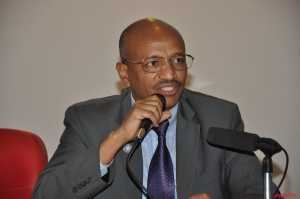- Stay Connected
Ethiopia plans for employment of 80% of graduates each year

Addis Ababa, June 24, 2017 (FBC) – The Ministry of Education has announced plan that would enable to employ 80 percent of graduates of institutions of higher learning every year starting from the coming year.
Minister of Education Dr. Shiferaw Teklemariam told ENA that the new initiative will improve employment opportunity and bridge the gap between demand and supply.
During the current academic year, 100,000 students will be graduated from the 33 public universities across the country. According to the plan 80,000 of the graduates will secure a job next year.
The Ministry is set to achieve the goal by materializing the industry-university linkage, which the country has introduced previously to improve quality of education and access to jobs.
A number of universities and industries had signed industry-university linkage agreement.
Fifteen years ago, enrolment capacity of institutions of higher learning in the country was only 11,000. That number has now reached 800,000, of which 30-40 percent are women.
As part of the efforts to produce more skilled labor that will meet the increasing demand, the nation has been engaged in expansion of institutions of higher learning.
The 11 new universities that will be operational in the coming academic year will increase the number of public universities across the country to 46.
This expansion of universities and other undertakings in the education sector needs huge budget from the government. The country allocates 5-6 percent of the GDP to the education and training sector, the Minister underlined.
“For a country like ours, there is no other option except developing its own people to the maximum potential in all arenas” he said.
Since most of the graduates prefer to work in cities, a challenging job is waiting the country to change this mind setup.
Despite the wide range availability of opportunities in many parts of the country, many graduates prefer working in and around urban areas, which he said needs more attention.
He also emphasized, “Without achieving this there is no way that one can think of Ethiopian renaissance or the path towards renaissance, for whatever is going to happen in terms of socio-economic development, democratic governance and so on”.
A country may have a wonderful policy, strategies, plan of actions and at the end of the day it is the trained human resource which will be instrumental in materializing all these.
By working to improve access and quality of education, Ethiopia is striving to build a human resource that will realize its goals.
